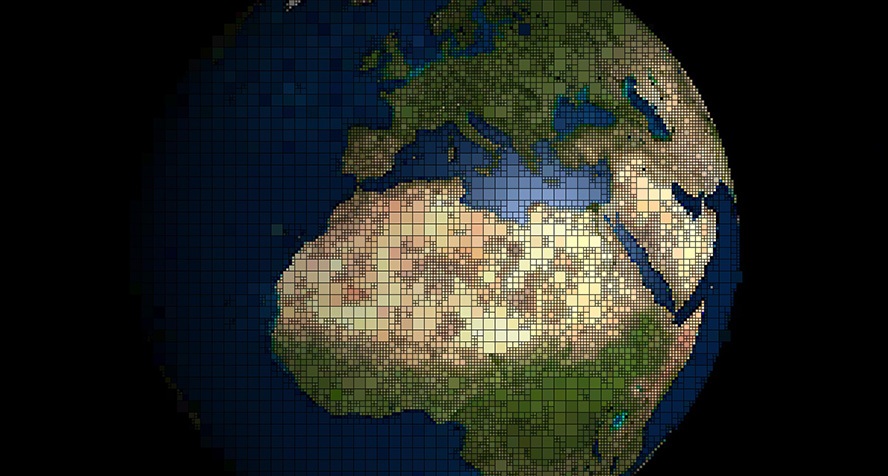While much of today’s discourse centres on whether globalisation should be encouraged or curtailed, it is worth relooking at how we view globalisation and the role governments play in managing the process.

In a recent talk on his book, The Great Convergence, Richard E Baldwin of the Graduate Institute of International and Development Studies, discussed why we should change the way we think about globalisation.
The new wave of globalisation
For Baldwin, the great convergence is a partial balancing between the rich and poor nations. The balancing process is facilitated by what he calls the new globalisation. New globalisation is led by the information and communications technology revolution, which has enabled mankind to overcome the problem of distance by connecting individuals with production assembly lines across the world. Trade in goods does not drive the new wave of globalisation, but trade in knowledge built in the goods and services and labour force.
Before we delve into the new globalisation and its economic and political implications, it is useful to understand what the old globalisation involved. Let us assume there are only three types of costs. Trading cost refers to the cost of moving goods from one place to another. Communication cost refers to the cost of moving ideas (i.e.know-how). Face-to-face communication cost refers to the cost of movement of people.
The pre-globalisation era predates the old globalisation era. Baldwin describes the former as a time when production and consumption were bundled. All three costs were too high for trading.
With the industrial revolution, however, the costs of trading declined due to the advent of steamship technology, while the costs of people movement and the transfer of know-how remained high. The old globalisation era lasted from the Second World War until the 1990s led to the globalisation of markets. Innovation flourished as production and consumption became less bundled. In this period, trading was an arbitrage of goods, said Baldwin.
This was followed by the arrival of information and communications technology, which has revolutionised trading. This new era is characterised by the rise of supply chains. Production and consumption no longer takes place in a specific location. For example, a car factory assembly line can be filled with parts imported from other regions of the world, which means that the entire assembly line can be decomposed as tasks are distributed across the world.
The new form of production and trading is made possible due to the decline in trading, communication and people movement costs. This era is therefore marked by the constellation of low-wage labour in developing nations and firms with know-how in developed nations.
Baldwin called this meeting of know-how with low wages as knowledge offshoring. The process happened suddenly, was unpredictable and uncontrollable at least with traditional policy tools to address trade deficits or structural bottlenecks and had a direct influence on individuals or professions.
Addressing the anti-globalisation sentiment
Understanding these dynamics is helpful when analysing the recent anti-globalisation backlash, especially in developed countries. This is because unpredictable, sudden and uncontrollable forces lead to anxiety and fragility. Mounting anxiety over job security and welfare concerns triggered by the forces of the new globalisation is manifesting in calls for anti-globalisation.
Weighing in on these ideas, Associate Professor Razeen Sally of the Lee Kuan Yew School of Public Policy at the National University of Singapore noted that Baldwin did not discuss David Ricardo's theory of comparative advantage although the only game in the town for countries is to play to their strengths.
Sally also cautioned that if a country is not a part of global supply chains, gains from trade might not be enjoyed. However, countries with the right policies, good institutions and endowments can still gain from trade. This might be realised through unilateral liberalisation and agreements instead of multilateral trade agreements.
Finally, Sally noted that the overall public sentiment towards supply chains, automation and other dynamics of the new globalisation can benefit poorer nations as costs of trading may further decline due to greater decentralisation.
While Sally remains optimistic about free trade, he cautions against the danger of wider inequality and a middle-class squeeze in the West, combined with the squeeze on developing countries in a middle-income trap, as pointed out in book, New Frontiers in Free Trade: Globalisation's Future and Asia's Rising Role. These forces could reduce the support for free trade around the globe, which is already being seen in the emergence of nationalist and populist rhetoric.
Why closer attention needs to be paid to policies
The modern world has witnessed several waves of globalisation since the industrial revolution. One may like to call each era different than the previous one since each period is marked by technological, if not ideological, progress. Yet what is common to the end of each wave since the 1820s is the failure to govern the process. As democratic regimes were not able to cope with the so-called Long Depression, the first wave ended with the First World War in spite of high optimism due to rising living standards and trade.
This highlights the importance of governance. As the information and communications technology revolution is met with both optimism and pessimism, it is expected that governments around the world will have to get their house in order.
Baldwin suggested that countries should prioritise active labour market policies such as income support and childcare support to manage pains and gains. He also added that the time spent on formal schooling can be shortened by introducing more targeted education that occurs more frequently.
Political stability is a critical asset for any nation. To achieve and maintain this, a country needs the right institutions and good policies.
References
Sally, Razeen. 2008. New Frontiers in Free Trade: Globalization's Future and Asia's Rising Role. Washington, D.C.: Cato Institute.